After having tested the FR 1.5 eTSI (mild-hybrid) version, we met again with the Spanish van to discover its unique hybrid plug-in variant, the SEAT Leon Sportstourer e-HYBRID.
It's SEAT's first “plug-in” model and masks its mixed diet of electrons and octanes very well on the outside, with the only “reporting” elements being the loading door on the front fender (from driver's side) and a small logo on the rear.
That said, in an aesthetic assessment that is as personal as it is subjective, I admit that I like the look of the new Leon Sportstourer. Keeping a certain sobriety, the Spanish van has a greater visual sophistication than its predecessor.
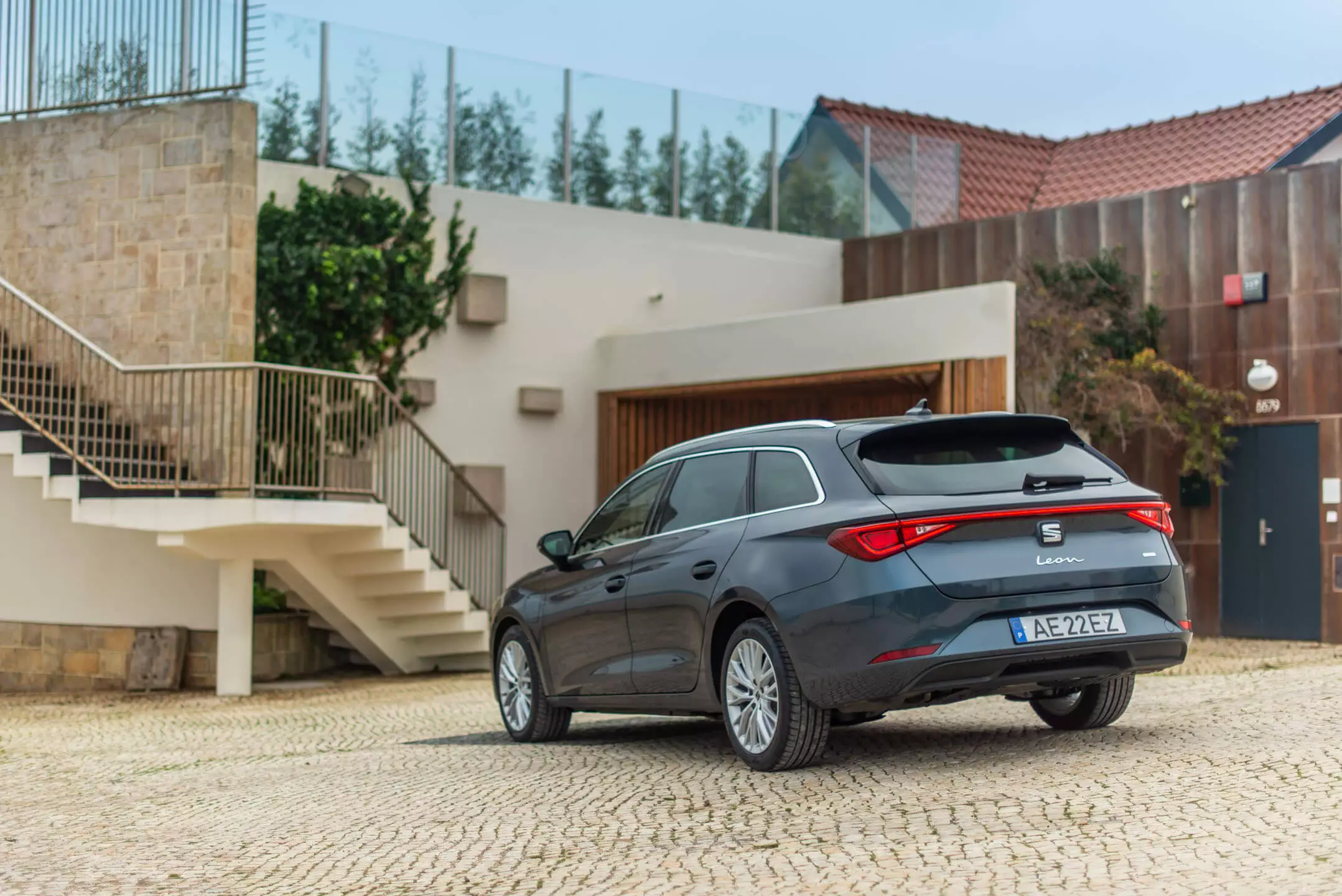
Whether because of the light strip that crosses the rear or because of its larger dimensions, the truth is that wherever I went with this SEAT Leon Sportstourer e-HYBRID I didn't go unnoticed and this can only be seen, I hope, as a “positive note. ” in the style of Martorell's proposal.
And inside, what changes?
If on the outside the differentiating elements compared to the other Leon Sportstourer are scarce, inside these are practically non-existent. In this way, only the specific menus on the instrument panel and in the infotainment system remind us that this SEAT Leon Sportstourer is also “plugged in”.
Subscribe to our newsletter
For the rest, we continue to have one of the most modern cabins in the segment (in this respect, the evolution compared to the previous generation is remarkable), robust and with soft-touch materials in the areas where the eyes (and hands) walk the most.
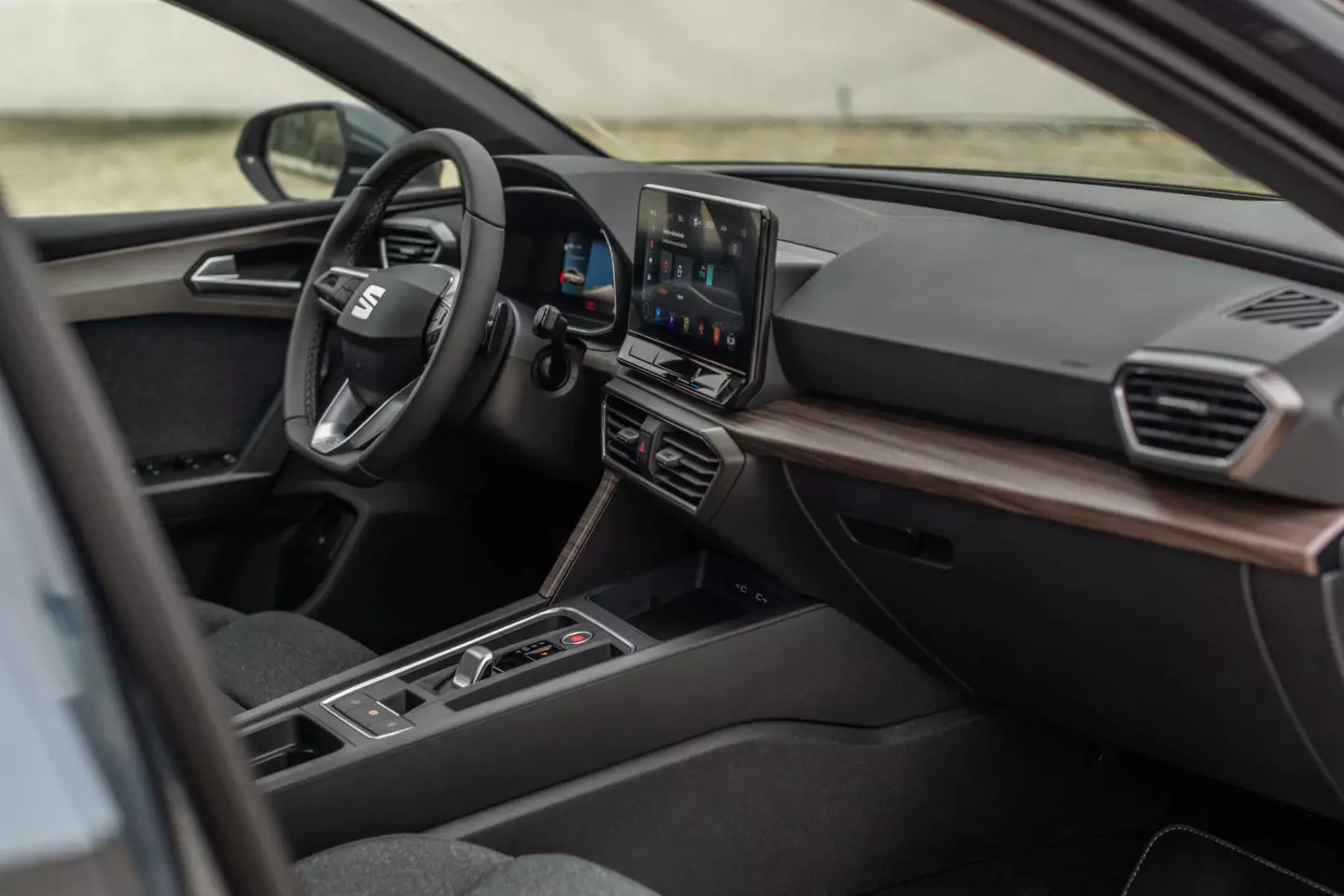
The interior of the SEAT Leon Sportstourer has a modern look.
The end result is positive and there is only regret for the almost total absence of physical commands and shortcut keys. By the way, about these we only have three in the center console (two for the temperature of the climate and one for the volume of the radio) and the fact that they consist of tactile surfaces and are not illuminated at night does little to support their use.
In the space chapter, whether in the front or back seats, Leon Sportstourer lives up to the more familiar format, taking advantage of the MQB platform to offer good levels of habitability.
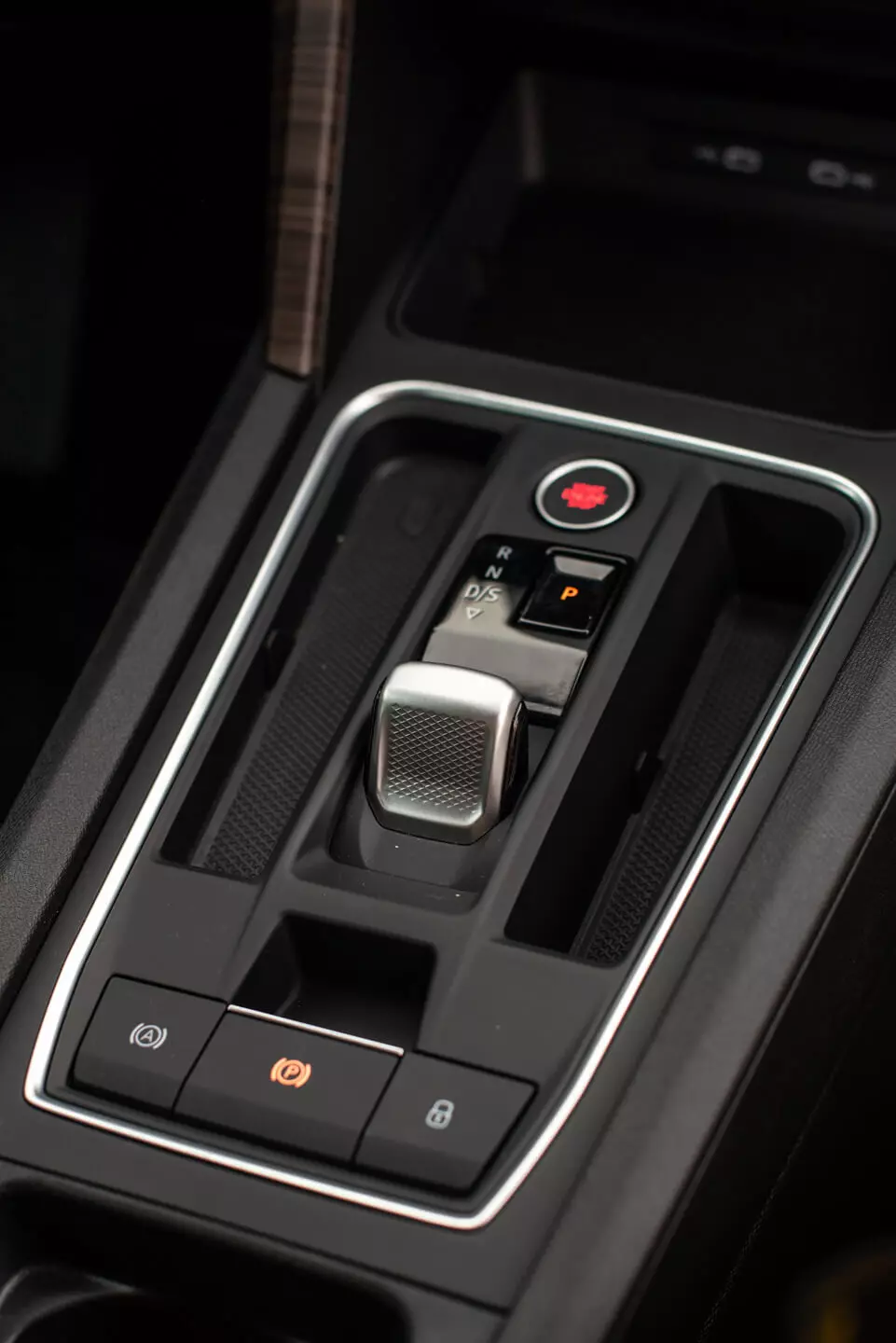
As for the luggage compartment, the need to accommodate the 13 kWh battery meant that its capacity was reduced to 470 liters, a value considerably lower than the usual 620 liters, but still up to the standard of family tasks.
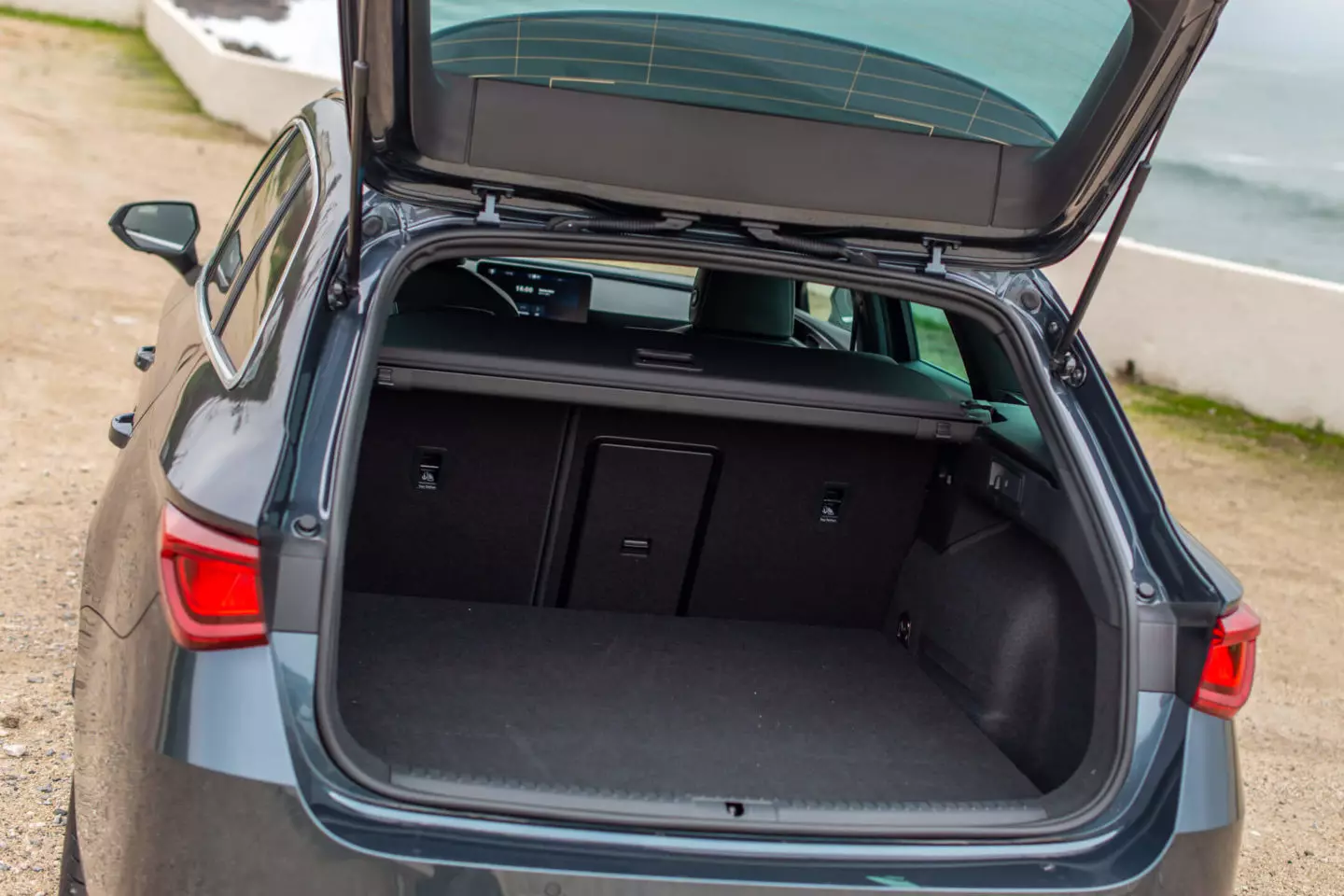
It's "only" the most powerful version
In addition to being the most ecological variant of the Leon range, the plug-in hybrid version is also the most powerful, with 204 hp of maximum combined power, the result of the "marriage" between the 1.4 TSI of 150 hp and the electric motor of 115 hp (85 kW).
Despite the respectable numbers and above those offered by the competition (the Renault Mégane ST E-TECH, for example, stays at 160 hp), don't expect any sporting ambitions from Leon Sportstourer e-HYBRID.
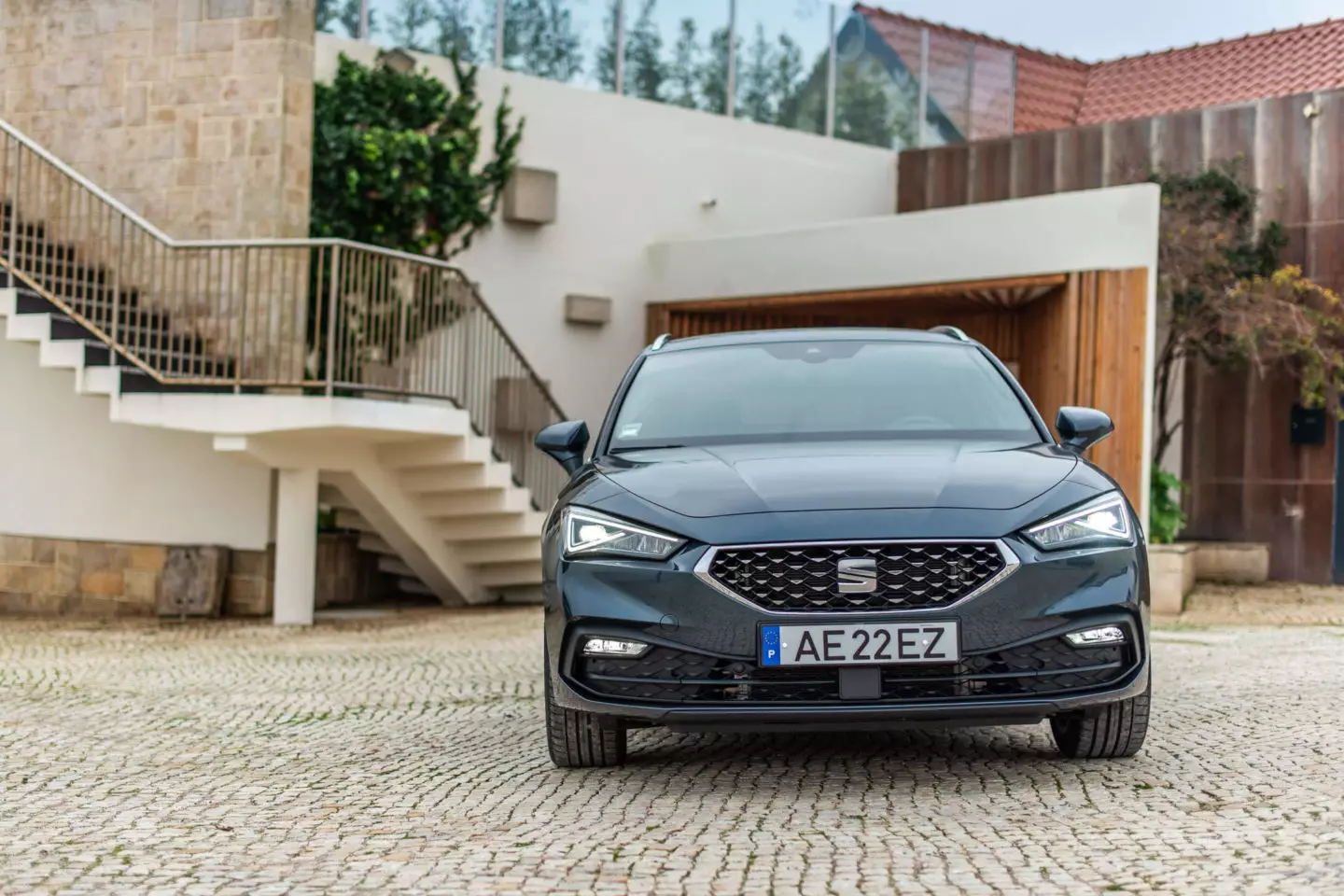
In a 3.6 kW charger (Wallbox) the battery charges in 3h40min, whereas in a 2.3 kW socket it takes six hours.
It's not that the performances aren't interesting (which they are), but its focus is on family tasks and economy of use, an area in which it can rival the Diesel proposals.
After all, in addition to allowing us to travel up to 64 km in 100% electric mode (without economic concerns and on a route with a lot of highway I managed to cover between 40 and 50 km without using octane), this Leon still manages to be very economical.
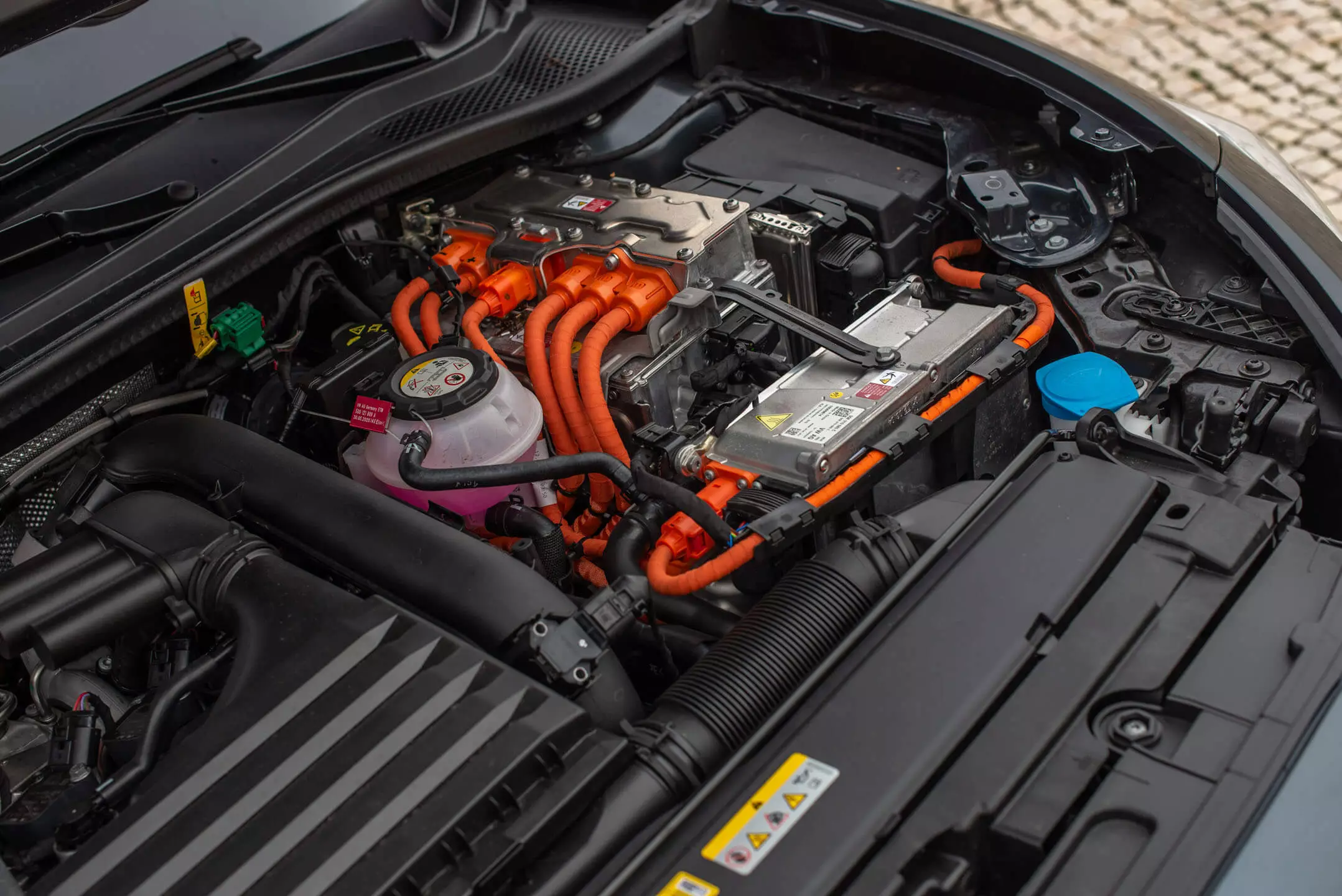
Not counting the periods where we have (a lot) of battery charge and where the smooth and efficient hybrid system allows to obtain averages of 1.6 l/100 km, when the charge runs out and the SEAT Leon Sportstourer e-HYBRID starts to function as a conventional hybrid, the averages walked by 5.7 l/100 km.
Moving on to the dynamic chapter, the Spanish van proved to be able to combine comfort and behavior well, assuming a more balanced than fun posture, well suited to its family tasks.
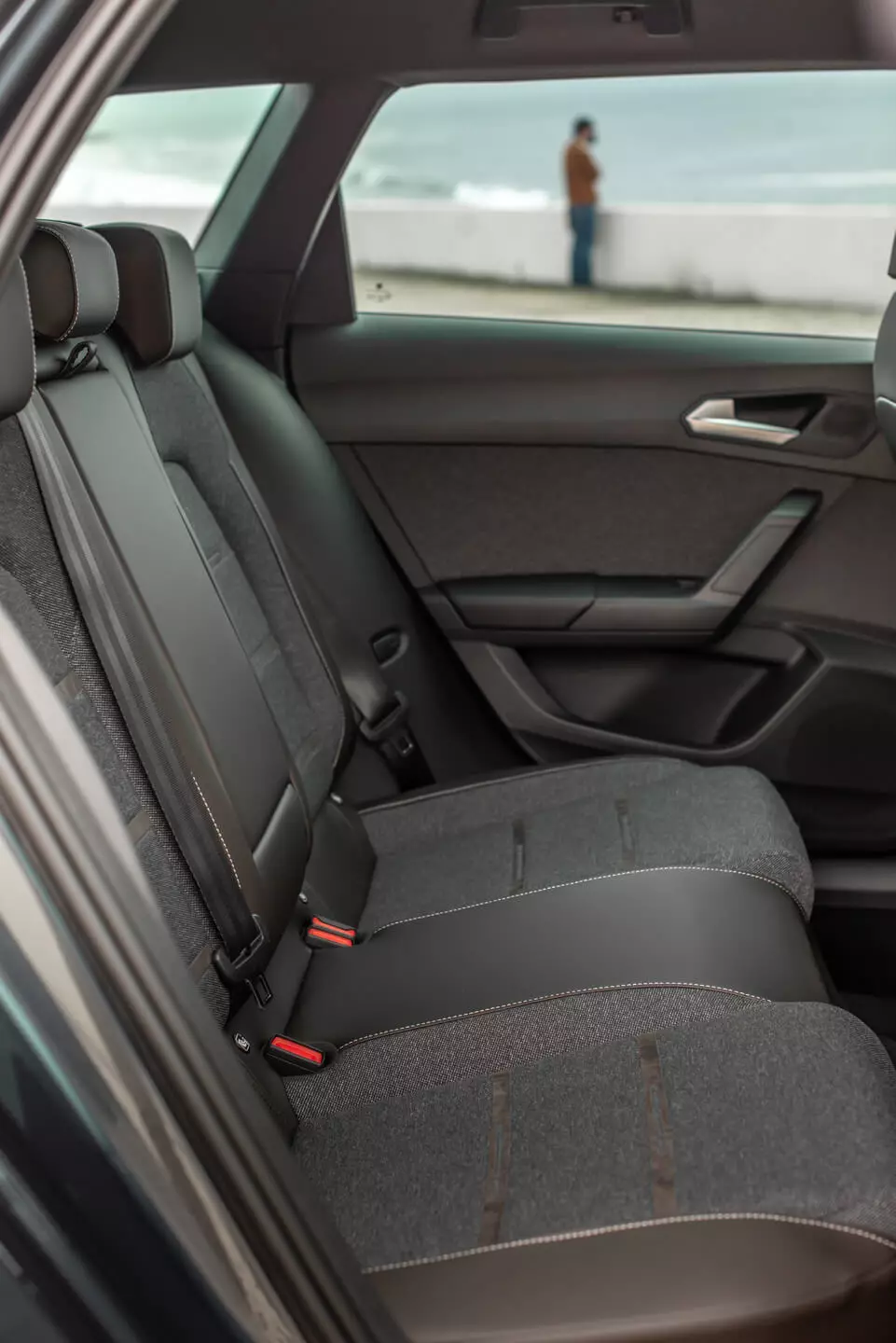
Although the unit tested did not have the DCC (Dynamic Chassis Control) system, the steering proved to be precise and direct, the control of body movements is well achieved and stability on the highway follows in the path of its German “cousins”.
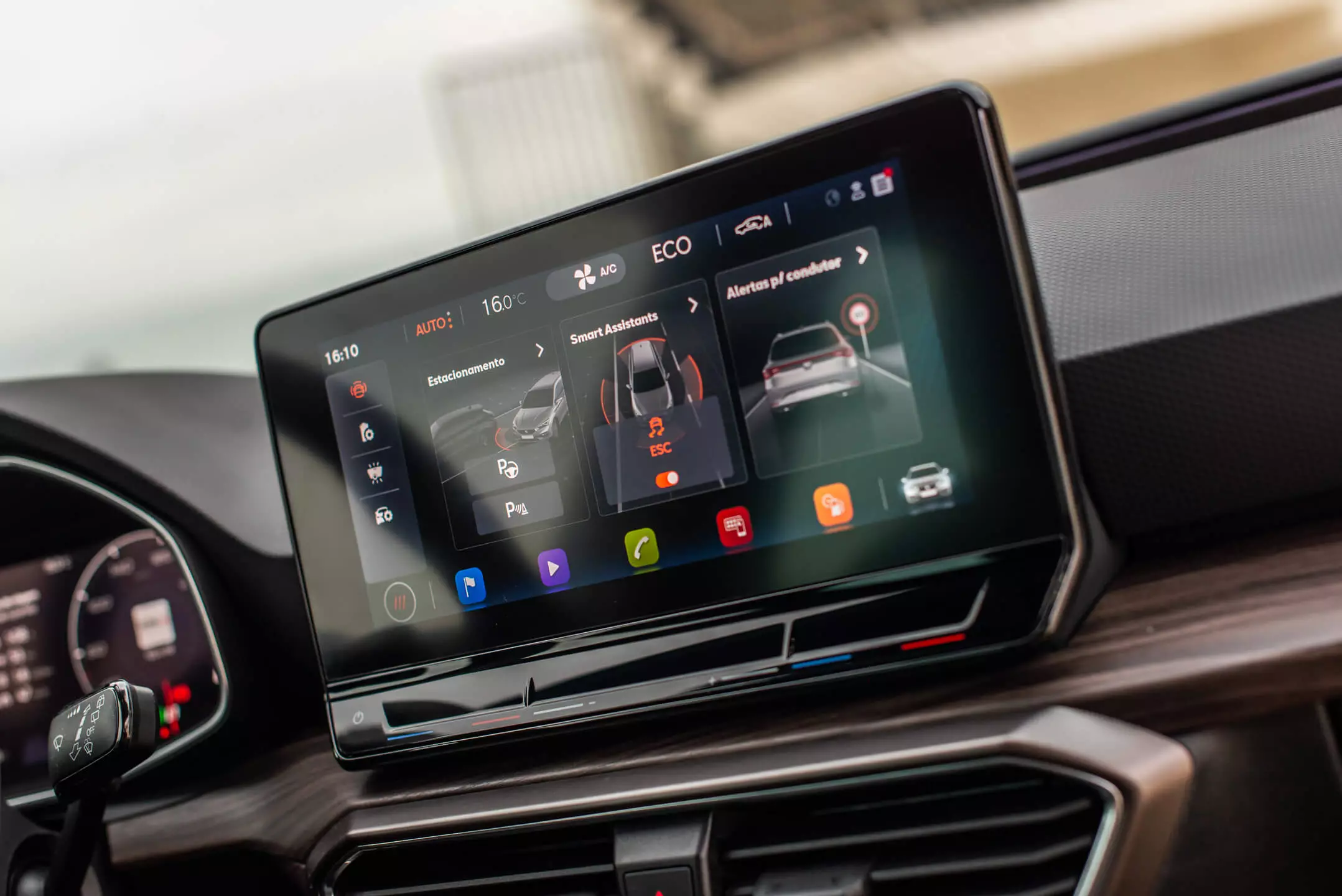
Is the car right for me?
The SEAT Leon Sportstourer e-HYBRID proves that SEAT did “the homework” before releasing its first plug-in hybrid.
After all, to the qualities already recognized in the Spanish proposal such as the living space, the distinct look or the robustness, the SEAT Leon Sportstourer e-HYBRID brings more power than some of its main rivals and a truly effective plug-in hybrid system.
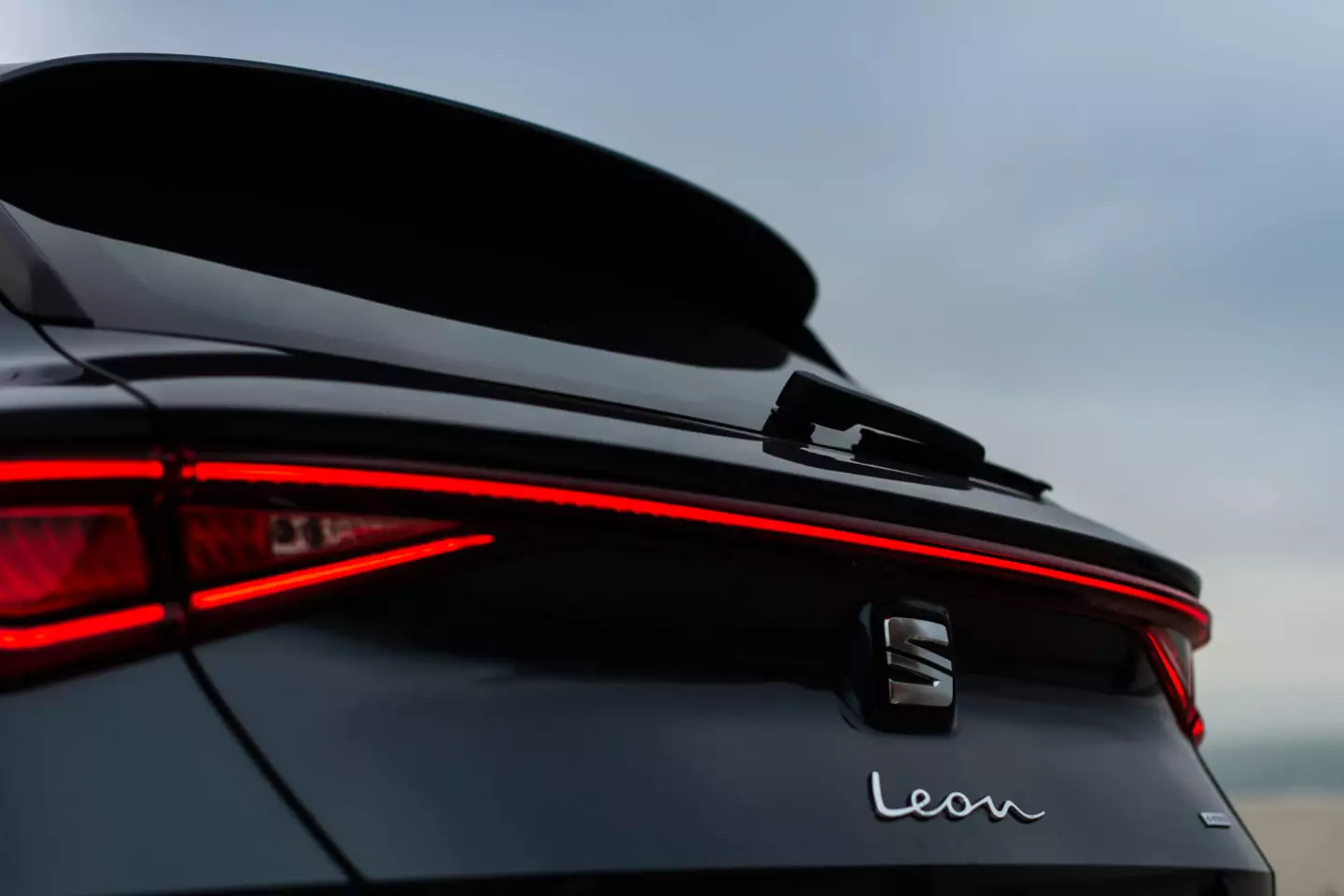
Is it the right car for you? Well, in this case maybe you better get a calculator. It is true that it has 204 hp and an interesting potential for savings, it is no less true that this variant costs from 38 722 euros.
To give you an idea, a Leon Sportstourer with the 1.5 TSI of 150 hp is capable of averages in the region of 6 l/100 km and is available for a more reasonable 32 676 euros.
What does this mean? It means that, as with Diesels, the plug-in hybrid proposal appears, most likely, as the ideal solution for those who travel many kilometers daily, especially urban and suburban, where the benefit of being able to walk in electric mode for dozens of kilometers will allow a remarkable saving in fuel costs.
